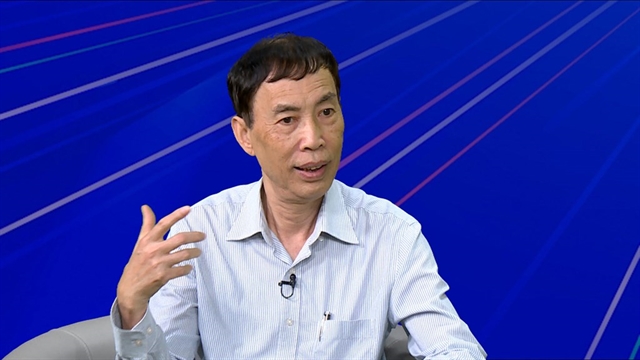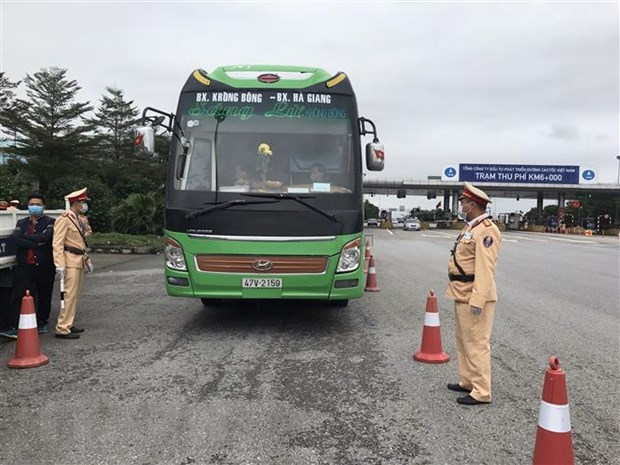 Society
Society


|
| Traffic police stop vehicles to conduct inspections and handle violations of drivers who drive under the influence of alcohol. — VNA/VNS Photo Doãn Tấn |
Colonel Đỗ Thanh Bình, deputy director of the Traffic Police Department under the Ministry of Public Security, talks to the media about paying traffic fines online via the national public service portal
After three months of piloting online payment for traffic violations on the national public service portal in five localities, can you tell us about the results?
Traffic police officers nationwide posted 13,000 violations on the National Public Service Portal, of which 11,000 cases ended in sanctions.
Our mission is to provide people with the fastest relevant information such as violation records and penalty decisions so that violators can choose the payment methods.
However, the rate of payment of fines through the portal is limited. We have only received 97 cases.
We need people's phone numbers so we can provide them with information as quickly as possible. But in the administrative violation record, the phone number of the violator is not required.
We also need people's email address to send violation information in PDF format.
Another difficulty is that people must have an account and information technology knowledge to pay fines online.
It is necessary to enhance close co-ordination between relevant agencies to facilitate online payment.
The Traffic Police Department is co-operating with the State Treasury to identify and digitise the fine payment code to facilitate online payment.
What do you think about the workload of traffic police nationwide when people use this online service?
Using technology is an indispensable trend of modern life.
Digitisation will help greatly reduce the workload of police officers.
The department will update the information of violators on its database and link it with the national public services portal.
Each year, we punish nearly 5 million cases of violations. It could save money for the State budget if we do not have to print paper records.
The Ministry of Public Security is currently building many databases.
As for traffic police, we have had data for vehicle registrations since 2009.
Do you think paying fines online will actually contribute to preventing negative experiences and corruption?
On-the-spot and offline payment procedures are not only time-consuming and strenuous, but they also allow corruption and negative experiences.
Surveillance cameras and speed cameras have been installed along some highways and expressways to record violations.
Penalties will be imposed in accordance with violations documented on camera. And also through cameras, corruption and negative experiences can't be hidden.
Surveillance cameras and speed cameras installed along the Hà Nội-Lào Cai Expressway have been put in use to start recording violations.
The images and data recorded are sent to an information centre and then transmitted to traffic police who are on duty along the route.
Traffic police officers only control at the toll booth.
We believe electronic data, electronic evidence and electronic penalties will show transparency and objectivity throughout the operation.
This is a mandatory requirement and the direction of the Minister of Public Security in implementing digital technology.
The difficulty now is making the synchronous connection between agencies.
People's compliance with traffic laws will also be improved.
What do you think about the feasibility of applying digital technology in traffic sanctions?
There are fewer violators completing their payment through the portal and they have not also strictly implemented this responsibility.
We have asked the Ministry of Justice to review the provisions of the Law on Handling Administrative Violations. Violations recorded from cameras should be considered as direct evidence to verify violations.
I think reforms and technology application aims to help detect and handle violations strictly and violators must be responsible for their violations. — VNS




